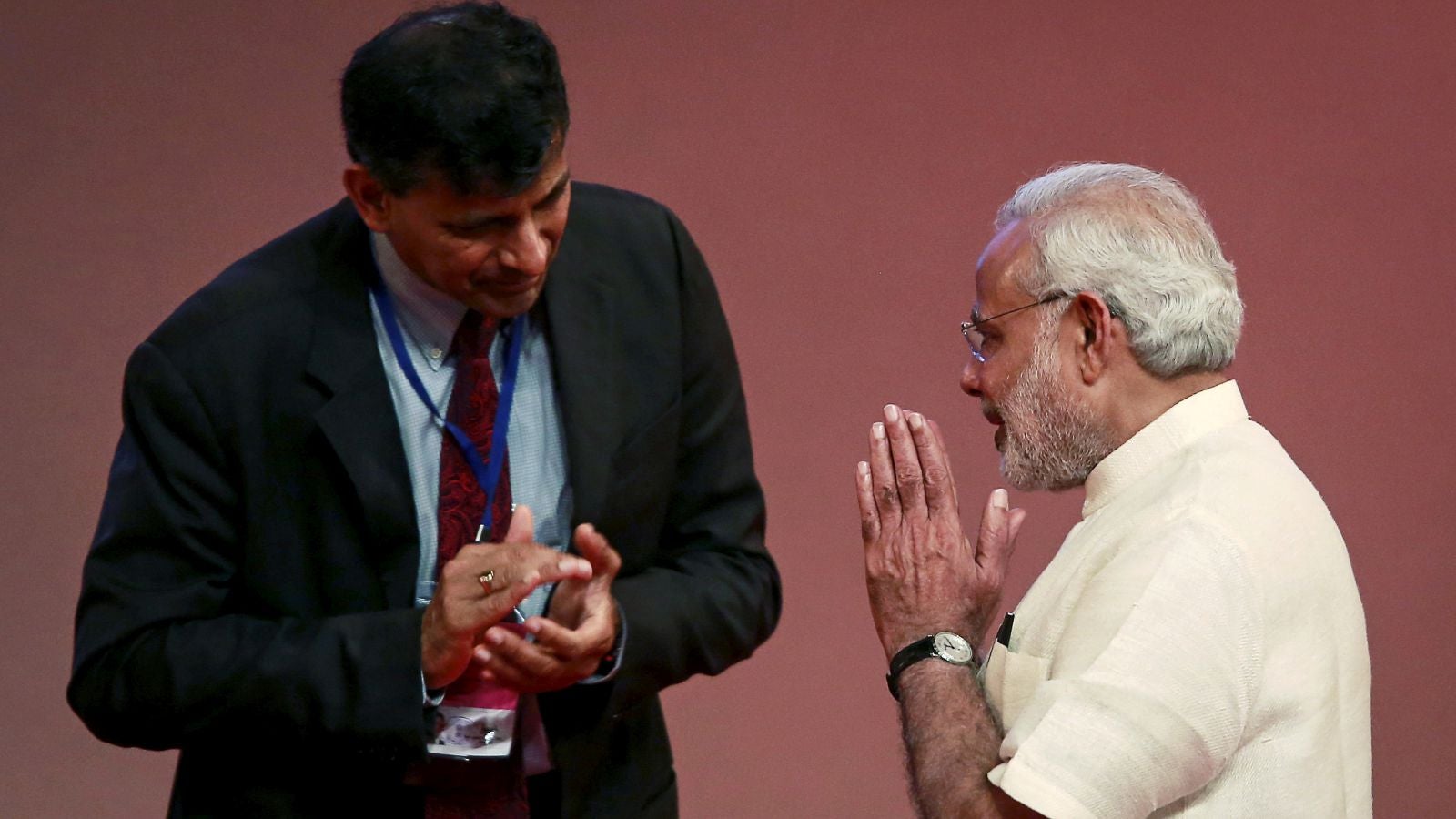An Indian could run the UK’s central bank. Why can’t a foreigner run India’s?
The United Kingdom has begun looking for a replacement for Mark Carney, the head of the Bank of England (BoE). A former chief of the Bank of Canada, too, the Canadian national’s term ends in June 2019.


The United Kingdom has begun looking for a replacement for Mark Carney, the head of the Bank of England (BoE). A former chief of the Bank of Canada, too, the Canadian national’s term ends in June 2019.
So the Financial Times newspaper has suggested that Raghuram Rajan, the former Reserve Bank of India (RBI) governor, could be a good fit for Carney’s position.
“Attracting Raghuram Rajan, the highly respected Chicago-based economist…would be a coup, as would securing Agustín Carstens, Mexico’s central bank chief and the new general manager of the Bank of International Settlements,” the Financial Times reported on April 22 (paywall).
As RBI governor, though, Rajan’s policies and views drew ire from senior members of the ruling Bharatiya Janata Party (BJP). Since he’d held on to his US green card, he wasn’t deemed “mentally fully Indian.”
Now Rajan’s successor Urijit Patel’s RBI term ends in September 2019. Is it time for India, too, to look at a qualified foreign individual to run its central bank?
Should India do it too?
“In the modern world, self-assured countries are increasingly comfortable hiring top international talent for their central banks regardless of nationality,” said Sadanand Dhume, a resident fellow at the Washington DC-based think tank, American Enterprise Institute. “However, India is not only too under-confident at this point to contemplate doing this, it even had trouble seeing the value of Rajan and retaining him.”
Rajan was the first RBI governor in two decades to serve for just three years. “India would prefer a talentless desi (native) than a talented pardesi (non-native) or even a green card-holding pravasi (non-resident Indian),” said Meghnad Desai, an economist and an Indian-born British politician.
While Patel, too, can be considered an outsider since he was born and raised in Kenya, he hasn’t antagonised the government or the masses, unlike Rajan who vociferously critiqued some of the government policies, Desai said.
“(Patel) has kept his head down and does not speak on matters other than monetary policy, unlike Rajan. So, Indians may select a born-abroad person of Indian origin who holds an Indian passport and is a person of few words,” he said.
Indeed, the biggest challenge for anyone, particularly a foreigner, at the helm of any government job in India is always the administrative and public atmosphere. All the more in the highly charged political setting at present in the country.
Hence, many do feel that the high offices, especially of the RBI governor, should be held only by an Indian.
“The way the banking industry works in a developing economy such as India is very different. It is unlikely that a person who is not from India will be able to fully grasp how this country works. Therefore, I think an Indian candidate is most suited for such jobs,” said a former RBI governor, requesting anonymity.
Sriram Iyer contributed to this story.